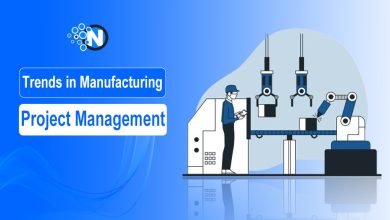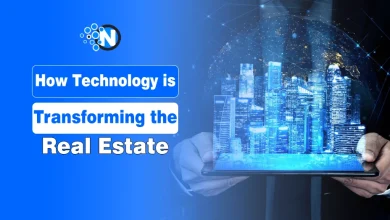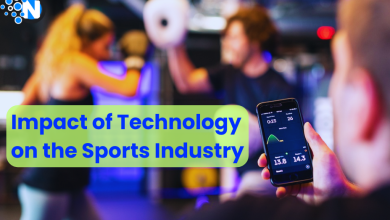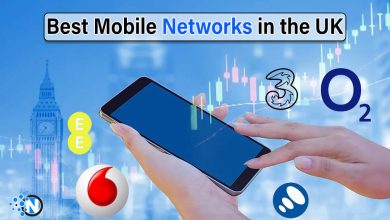How Blockchain is Transforming Business Landscape

Blockchain is changing how teams perform, offering enhanced security and transparency. This decentralized ledger system guarantees records integrity, revolutionizing industries like finance, healthcare, and delivery chain management.
Understanding its complexities is crucial for businesses aiming to leverage its benefits. For this purpose, you can visit the-news-spy.net, to get specific insights into blockchain technology and its packages in various sectors.
Understanding Blockchain Technology
Blockchain is a distributed ledger system. Imagine a massive electronic book distributed among several machines over a network. Multiple parties validate each transaction and piece of data added to this ledger, resulting in an unchangeable record that is impossible to manipulate. Because it is distributed, there is no need for a central authority, which promotes transparency and confidence among network participants.
One of the essential ideas of blockchain is decentralization. Unlike conventional centralized systems, wherein an unmarried entity controls the data, blockchain distributes manipulation among a network of nodes. This decentralization no longer complements security however, it additionally promotes transparency, as all transactions are seen to all participants within the network. This transparency is further strengthened with the aid of using consensus mechanisms, which make certain that every one node agrees on the validity of transactions earlier than they’re delivered to the blockchain.

Applications of Blockchain in Business
Blockchain offers several benefits in various industries, such as supply chain control, financial services, healthcare, and real estate. In delivery chain management, blockchain can be used to authenticate merchandise at each stage of the delivery chain, lowering fraud and mistakes, and increasing efficiency and transparency. Blockchain is revolutionizing how we make transactions in financial services, with cryptocurrencies and online payments presenting quicker, more stable, and cheaper alternatives to traditional banking structures.
In healthcare, blockchain can secure the storage and sharing of patient records, streamline clinical report management, and enhance affected persons privacy and records integrity. In real estate, blockchain can simplify asset possession and name transfers, allow smart contracts for condominium agreements, and reduce fraud even as it improves transparency. These are only some examples of ways blockchain is reworking industries and reshaping business procedures.
Blockchain Challenges and Solutions
Blockchain developers face many challenging circumstances, such as scalability issues, transaction speed, and power consumption, despite its many advantages. A blockchain’s scale grows with the number of transactions on it, which results in slower transaction speeds and higher fees. Developers are working on solutions that include consensus algorithms that can speed up transactions and layer 2 protocols that could make blockchains more scalable in order to overcome those obstacles.
Blockchain’s power consumption is another project. This is especially true for proof-of-work (PoW) consensus techniques, which underpin cryptocurrencies like Bitcoin. PoW uses a significant amount of electricity since it forces miners to solve challenging mathematical puzzles in order to validate transactions. In order to lessen this, developers are looking into alternate consensus techniques like proof-of-stake (PoS), which mandates that validators stake a certain quantity of cryptocurrency in order to confirm transactions and reduce the amount of electricity needed for mining.
Impact of Blockchain on Traditional Business Models
Blockchain technology is revolutionizing traditional business models by eliminating the middleman and providing endless solutions 0. 33-birthday celebration offerings. By eliminating intermediaries through the use of contracts within the decentralized network, blockchain lower costs, fasten operations, and enhances the transparency of the transactions. This has larg-scale applications for industries like banking where, blockchain can make international money transfers easier, cheaper, and also not require the use of banks.
Blockchain additionally enables the advent of decentralized Decentralized Autonomous Organizations (DAOs), which are corporations run through smart contracts instead of using human beings. DAOs operate transparently and autonomously, with decisions made based on predefined guidelines and without the want for human intervention. This can streamline decision-making strategies, reduce forms, and boost efficiency.
Future of Blockchain
Blockchain technology has a bright future. We may anticipate even greater industry adoption as the technology develops, its scalability gets better, and regulatory frameworks solidify. Businesses, developers, and governments working together will be essential to maximizing blockchain’s promise and building a more safe, open, and effective business environment.
Exploring the Practical Applications in Business
It is important to go beyond the hype surrounding blockchain and focus on its practical applications. Businesses should carefully assess how blockchain can address their specific challenges and provide better return on investment. Understanding business needs and then investing in the right Blockchain solutions is the best way to get the most out of it.
Conclusion
Blockchain’s transformative effect on conventional commercial enterprise models is simple. Its potential to streamline operations, reduce expenses, and improve protection makes it an effective tool for businesses. Embracing blockchain technology is not just staying relevant; it is shaping the future of business in an extra efficient, steady, and transparent manner.




